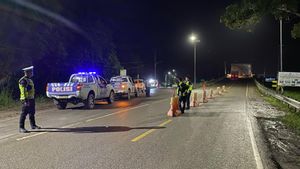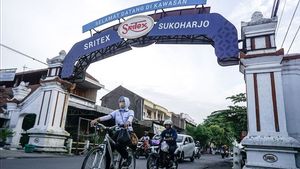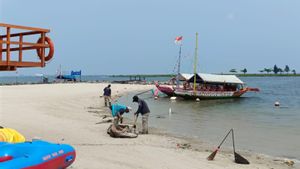JAKARTA - The Ministry of Home Affairs (Kemendagri) has sent an investigation team to five villages that are reportedly fictitious in Konawe, Southeast Sulawesi. As a result, the Director General of Village Government Development at the Ministry of Home Affairs, Nata Irawan, explained that the story about a fictional village is only 'fictional'. In other words, a fictional village never existed.
According to Nata, the team found the village existed. It's just that, governance is not running optimally because of legal flaws. "It is not fictitious. We underline it, it is not fictitious. The village exists. We see it in the field, the village exists and is not fictitious," Nata told reporters in Jakarta, Monday, November 18.
Not only that, the Ministry of Home Affairs' investigation team also obtained data and information regarding the stipulation of Perda Number 7 of 2011 concerning amendments to the Regional Regulation of Konawe Regency Number 2 of 2011 regarding the Formation and Defining of Villages in the Konawe Regency Region, apparently it was not carried out through mechanisms and stages in the DPRD.
So, based on these findings, the Ministry of Home Affairs concluded that there was a legal flaw in it. "The Perda carried out by the Konawe Regent is legally flawed, because it does not go through the DPRD mechanism. So it must be corrected," said Nata.
In the Perda, Nata also said that there were 56 villages listed. This village is then said to be legally flawed and has the potential to cause state losses. In the end, as a follow-up to this maladministration, the village heads and a number of other village officials were questioned by the Southeast Sulawesi Police.
From the results of the verification, it was found that 34 villages had met the requirements to be designated as villages. Meanwhile, 18 villages still need to carry out administrative improvements.
Meanwhile, four other villages, namely Arombu Utama Village, Latoma Subdistrict, Lerehoma Village, Anggaberi Subdistrict, Wiau Village, Routa District, and Napooha Village, Latoma Subdistrict, are still being investigated due to inconsistencies in population and area data.

Apart from noting that there were inconsistencies, Nata also said that government activities in the four villages were not going well. This is because the village head and his apparatus do not get decent income. Then, the team also noted that there was a gap between the head and village officials and local village assistants who received the same income as village officials.
"In fact, in fact the local village assistants are not always present and do not help in the field," he said.
From the results of this investigation, it is also known that the regional heads, both the governor and the regent, are in fact not implementing village governance properly. So, to solve the problem, the Ministry of Home Affairs then sends a circular to carry out a comprehensive and iterative village arrangement.
"The rearrangement as mandated in Law Number 6 of 2014 concerning Villages," said Nata.
Finally, as a follow-up, Nata also said that the Ministry of Home Affairs would strengthen the Government Internal Supervisory Apparatus (APIP) at the central, provincial, district to sub-district levels.
"APIP is given the tasks and functions to carry out guidance and supervision, the implementation of village government," he said.
Previously, Finance Minister Sri Mulyani Indrawati revealed that the emergence of new villages was due to the village fund budget. Based on the reports he received, many new, unpopulated villages were formed so that village funds were disbursed.
"We heard some input because there was a steady transfer from the state budget, so that now there are new villages that don't even have any inhabitants, just to get (village funds)," Sri Mulyani said in front of members of Commission XI DPR, Jakarta, Monday, November 4. .
Based on these findings, the Ministry of Home Affairs then created an investigation team consisting of 13 people. The team conducted a study on a number of villages which were said to be fictitious. Among them are villages in Konawe Regency, Southeast Sulawesi.
The English, Chinese, Japanese, Arabic, and French versions are automatically generated by the AI. So there may still be inaccuracies in translating, please always see Indonesian as our main language. (system supported by DigitalSiber.id)













